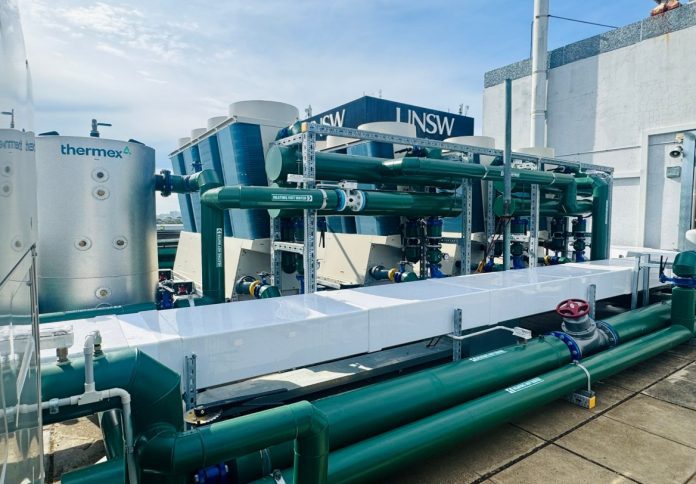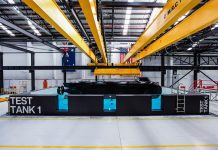
UNSW Sydney has completed the transition of its Sydney-based residential colleges and associated facilities from gas to renewable electric energy, marking a notable development in its ongoing sustainability program.
The shift replaces outdated gas systems at the University’s Kensington and Paddington campuses with renewable-powered electric infrastructure, UNSW Sydney said in a news release.
All kitchens, childcare centres, sports and hospitality amenities, and student accommodations are now fully electrified, a move that is expected to prevent around 700 tonnes of carbon dioxide emissions annually.
The electrification effort forms part of UNSW’s broader climate strategy, which includes a full university-wide transition to electric energy by 2030 and a net zero emissions goal by 2050.
Senior Manager of Energy and Utilities at UNSW, Jose Bilbao, said the changes were already delivering environmental and operational benefits.
“It has been absolutely rewarding seeing the kitchen before and after,” Bilbao said, speaking of the newly electrified Goldstein Hall kitchen, which serves over 1,300 meals each day.
“The fryers don’t produce fumes when we’re using them, so it’s a lot healthier here, much better air quality, it’s cooler and we’re using less energy.”
Head Chef at Goldstein Hall, Eve Wannasorn, highlighted how the changes had transformed day-to-day kitchen operations.
“Making a stew for around 300 people used to take about three hours. Now it’s around 45 minutes,” she said. “The food tastes nice. It’s fresher. And chefs don’t need to waste time changing oil manually. It means the quality of the food is much better.”
This first phase of electrification has reduced UNSW’s emissions from natural gas by an estimated 10%. The infrastructure upgrade includes the installation of 34 heat pump-operated dryers, 34 washers, 31 induction cooktops, and 10 electric barbecues.
New energy-efficient commercial kitchen appliances, including fryers, pressurised Bratt pans, and dishwashing systems, have also replaced older gas models.
Additionally, the University has installed eight domestic hot water heat pumps with a total heating capacity of 400 kW and 18 hot water tanks, replacing over 20 gas-powered water systems.
All electrified amenities are powered by renewable energy, sourced from UNSW’s on-site solar panels and the Sunraysia Solar Farm through a long-term Power Purchase Agreement.
Chief Property Officer at UNSW, Timothy Beattie, said the transition reflects the University’s leadership in sustainability and its commitment to meeting international climate targets.
“Electrification is not only possible, and critical to achieve the Paris agreement, but also desired as it provides so many direct and indirect benefits, like better air quality, operational efficiencies, and reduction of fugitive emissions,” Beattie said.
“This is an important investment for the University and the community. Once the program is completed, we’ll save around 155,000 GJ of gas per year. That’s like removing more than 5,300 cars from the road.”
UNSW Sydney is recognised as a global leader in environmental and social sustainability, currently ranked 12th in the world.



















